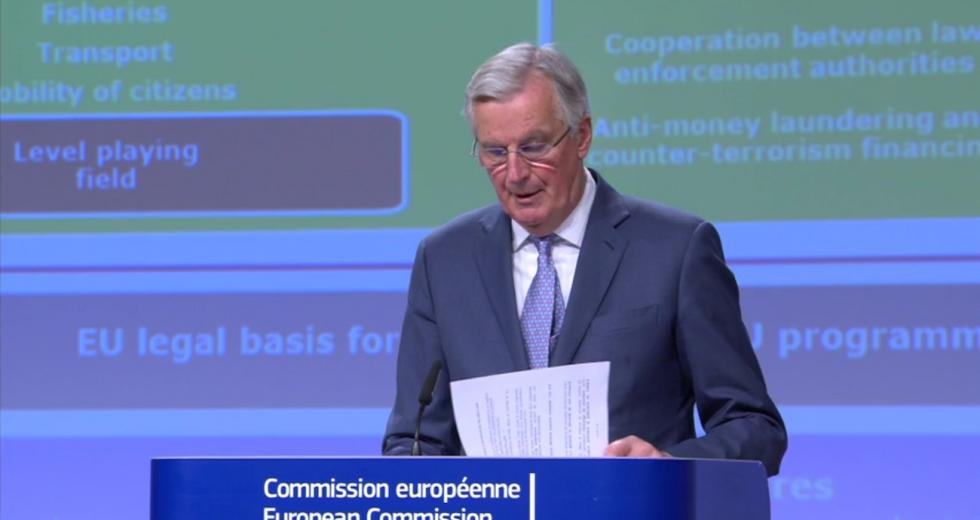
Britain ‘left’ the EU on 31 January, 2020. The following Monday, Michel Barnier, the EU’s chief Brexit negotiator, live streamed his proposals which will form the basis of the EU’s negotiating position for whatever relationship the UK and EU will have following the end of the ‘transition period’.
Barnier’s proposals came in the form of a written ‘mandate’ which will be presented to the European Council on 25 February for ratification. As soon as that ratification has happened - a formality - negotiations will begin.
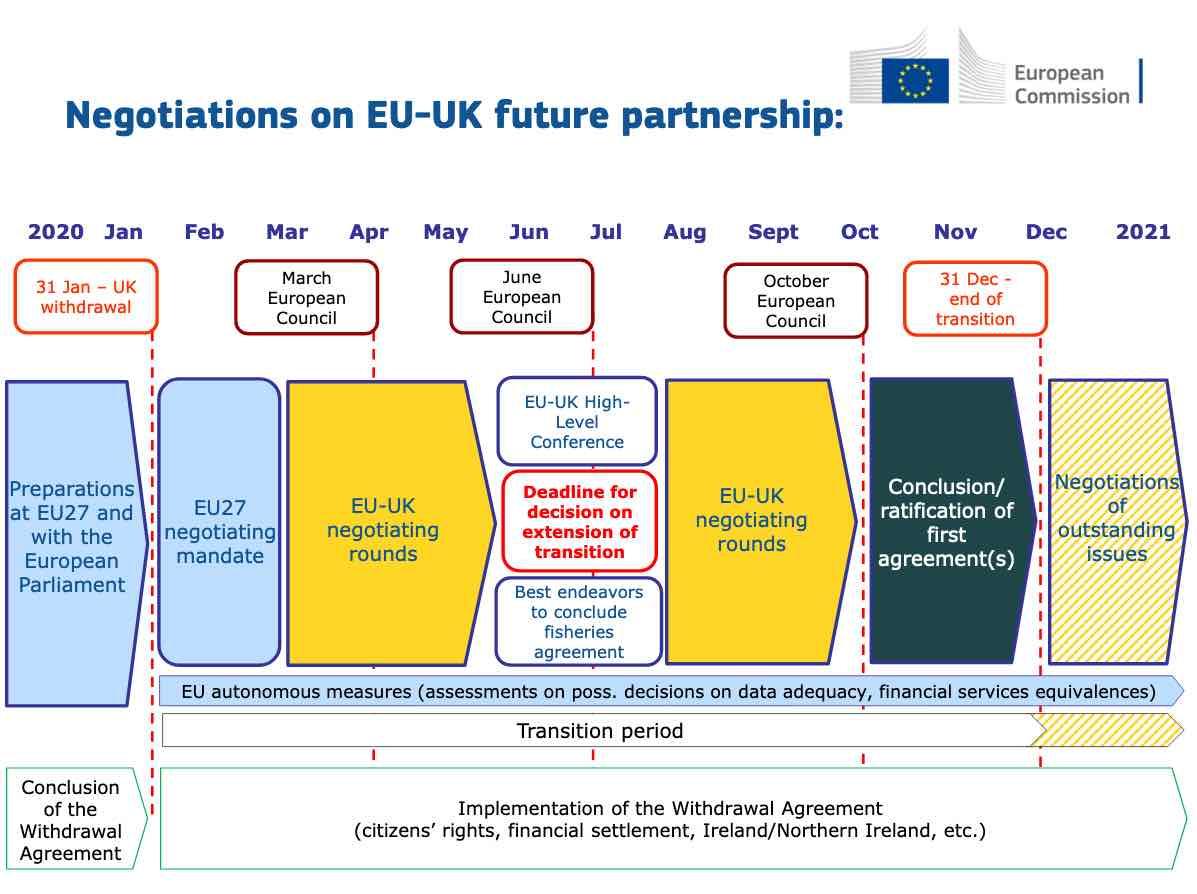
There are three main sections to Barnier’s proposals:
- an economic partnership,
- an security partnership,
- the institutional framework and governance of the future partnership.
Despite what British mainstream media would have us believe, the EU want much more from the future relationship than a ‘trade deal’. In fact, it could be said that what the EU proposes more accurately reflects the British government position, repeatedly expressed, of a relationship of ‘greater breadth and depth’ than has been seen before.
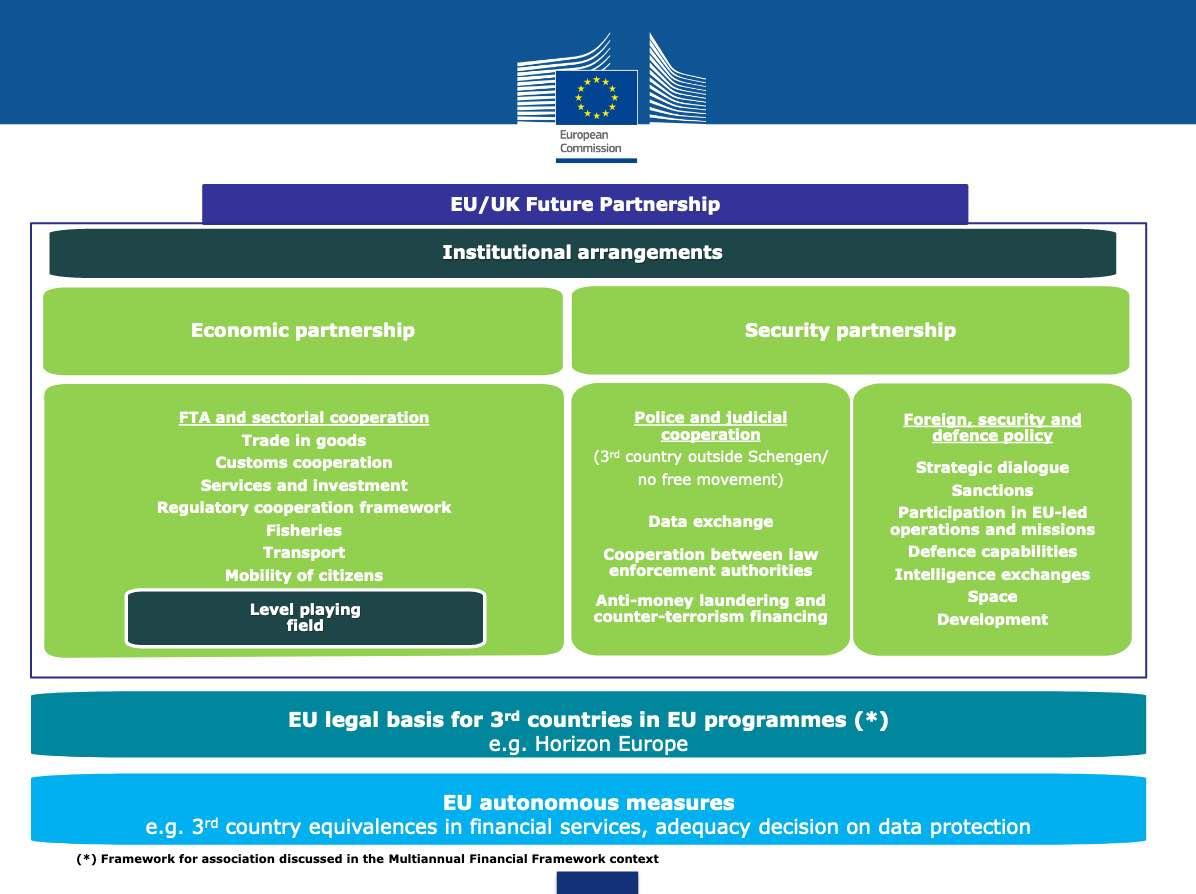
As Barnier explained, and as can be seen from his graphic above, the EU views a future security partnership as having equal importance as the economic one.
A question of language
Why is it that the UK mainstream media is not discussing ‘security’ and ‘governance’?
It is clear from all our dealings with MPs, ministers and journalists that there is a conspiracy of silence when it comes to anything other than trade.
That conspiracy takes the form of a three line whip in Parliament, and the tacit complicity of the media on the basis that if they don’t stay quiet on these issues, MPs and government will stop speaking to them and they will have nothing to publish. Mainstream press is now so reliant on being fed stories having decimated their investigative capabilities for commercial reasons, that they have no choice but to cooperate.
And more than that, we have now had it confirmed that UK Civil Servants are not fully briefing government ministers because the resulting questions would place a burden on their evenings and weekends. Is it possible under these circumstances for any government minister, or even the Prime Minister, to do anything other than mislead Parliament each time they make a statement on these issues?
But what was really surprising was that Michel Barnier gave his live stream presentation in two languages: French and English. And by coincidence, trade proposals were presented in English; the rest, including security, defence and dispute resolution, was in French. It was almost as if he understood clearly which areas should be easily accessible to a UK audience, and which should not.
The second very important chapter of the ‘partnership’
It was in French, then, that Barnier presented the “second very important chapter of our partnership”: security.
“We wish,” he said, “as far as possible, to set up a framework allowing the exchange of data, as well as police and judicial cooperation in criminal matters.”
The much hated European Arrest Warrant is here to stay, then?
European Court of Justice
“Any future cooperation with the United Kingdom on internal security,” he continued, “will, in our view, have to meet three conditions:
“First, the United Kingdom will have to commit to applying the European Convention on Human Rights;
“Second, the UK government will need to put in place adequate data protection standards. This is a fundamental concern for Europeans and to which the European Parliament will remain attentive;
“Third, any cooperation should be subject to an effective dispute settlement mechanism.
“And, where the partnership is based on concepts derived from European law, the European Court of Justice must be able to continue to play its role fully.”
Read that again: “the European Court of Justice must be able to continue to play its role fully.”
But one of the Brexit red lines was the supremacy of the European Court of Justice over UK law.
Comprehensive defence cooperation
The ‘mandate’ document which Barnier presented explains in detail exactly what the EU wants from its future security and defence relationship with the UK:
- structured consultation on Common Foreign and Security Policy (CFSP) and Common Security and Defence Policy (CSDP)
- Alignment on sanctions
- UK participation in CSDP missions
- Intelligence sharing
- UK involvement in European Defence Agency research and development
- Participation of “eligible United Kingdom entities” in collaborative defence projects … supported by the European Defence Fund
- UK participation in PESCO
In other words: full participation in ‘European Defence Union’.
It should be stressed, of course, that these are only proposals; a statement of a negotiation position. As such the EU is offering the UK an ‘opt-in’:
Making full use of the existing framework to cooperate with third countries, including through the United Nations and the NATO, the partnership should enable appropriate dialogue, consultation, exchange of information and cooperation mechanisms that are flexible, scalable and proportionate to the level of engagement of the United Kingdom alongside the Union.
We might call this the ‘plausible deniability’ clause. This allows the UK government to claim that “NATO will remain the cornerstone of UK defence, even after Brexit,” in the full knowledge that NATO is also the cornerstone of EU defence.
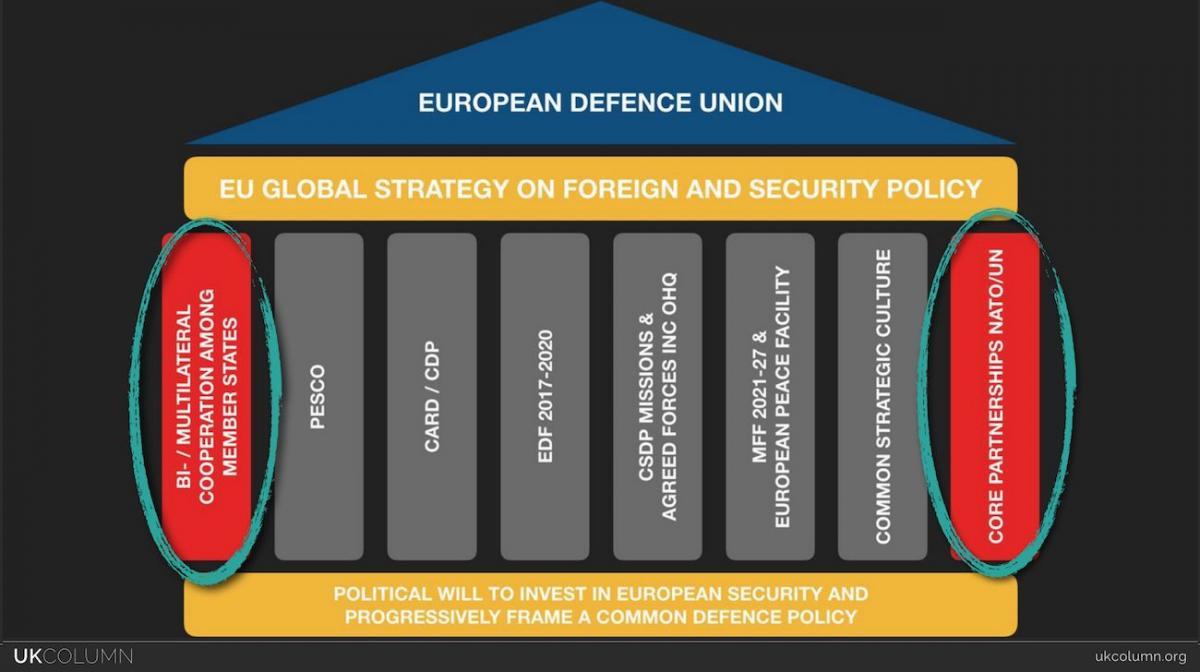
We should also keep in mind that to a significant degree, the UK is already signed up to European Defence Union through EI2.
What is clear, then, is that contrary to Boris Johnson’s claims, Brexit is not done. In fact, as Boris himself has said, “this is not an end, but a beginning”.
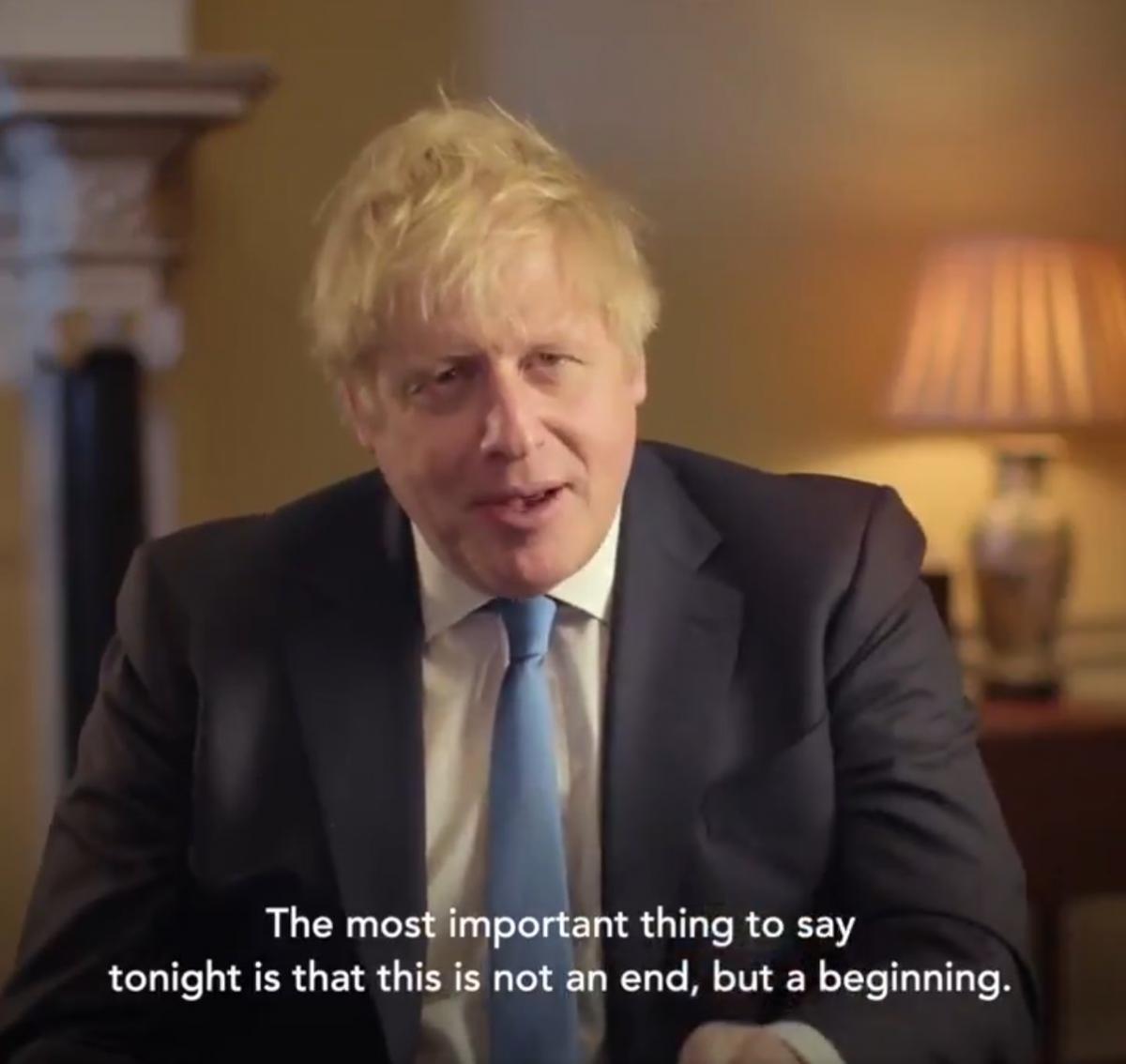
The question on everyone’s lips should be, “a beginning of what?”
For Michel Barnier, it is a beginning of a new treaty which will bring the UK right back under EU command and control, but without the accursed veto.
For the EU this is the perfect outcome, and nothing that Boris has said so far implies that the government will make anything other than the “sovereign” decision to opt fully in.

